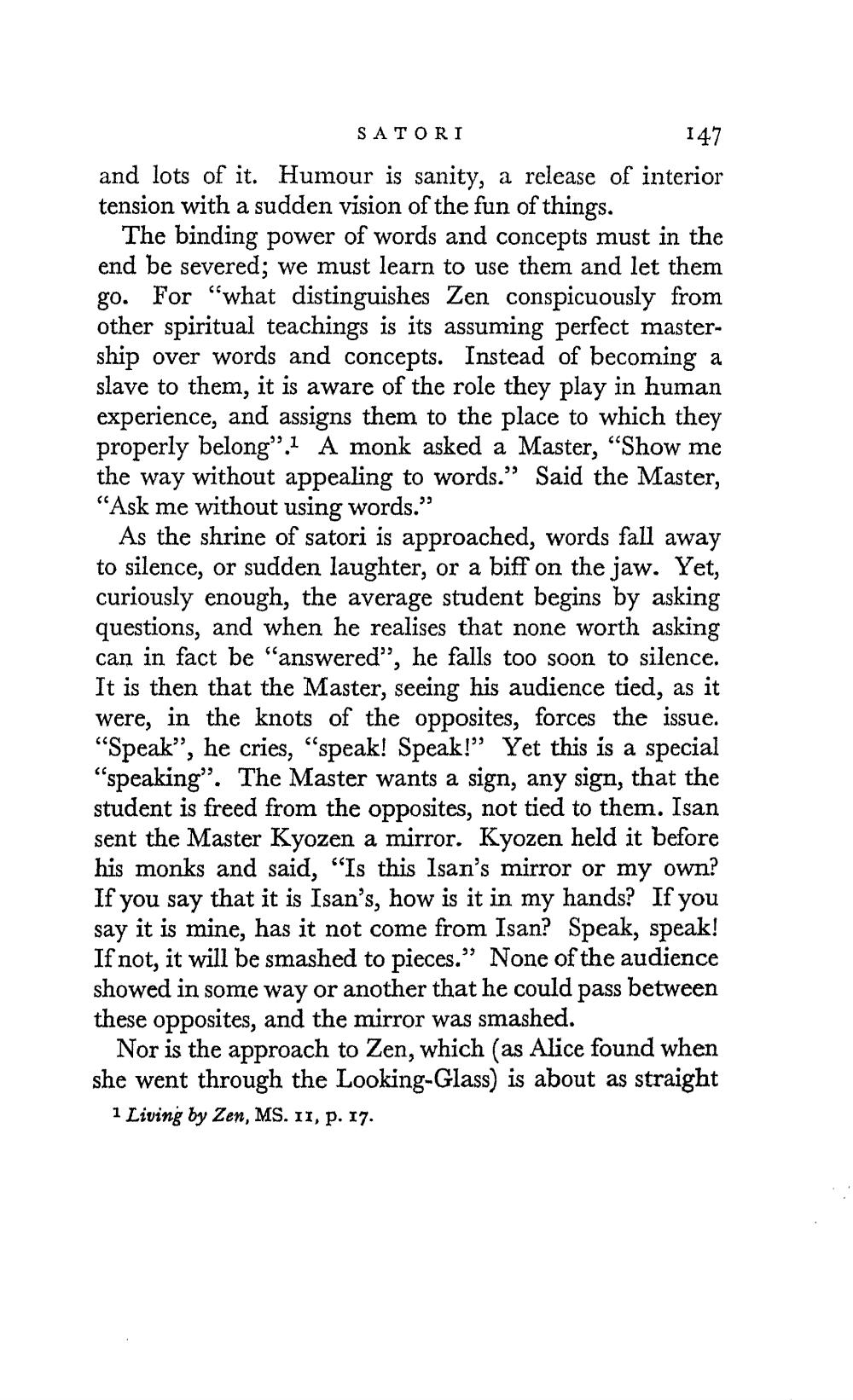________________
SATORI
147 and lots of it. Humour is sanity, a release of interior tension with a sudden vision of the fun of things.
The binding power of words and concepts must in the end be severed; we must learn to use them and let them go. For "what distinguishes Zen conspicuously from other spiritual teachings is its assuming perfect mastership over words and concepts. Instead of becoming a slave to them, it is aware of the role they play in human experience, and assigns them to the place to which they properly belong".1 A monk asked a Master, "Show me the way without appealing to words." Said the Master, “Ask me without using words.”
As the shrine of satori is approached, words fall away to silence, or sudden laughter, or a biff on the jaw. Yet, curiously enough, the average student begins by asking questions, and when he realises that none worth asking can in fact be "answered”, he falls too soon to silence. It is then that the Master, seeing his audience tied, as it were, in the knots of the opposites, forces the issue. "Speak”, he cries, "speak! Speak!" Yet this is a special "speaking”. The Master wants a sign, any sign, that the student is freed from the opposites, not tied to them. Isan sent the Master Kyozen a mirror. Kyozen held it before his monks and said, "Is this Isan's mirror or my own? If you say that it is Isan's, how is it in my hands? If you say it is mine, has it not come from Isan? Speak, speak! If not, it will be smashed to pieces.” None of the audience showed in some way or another that he could pass between these opposites, and the mirror was smashed.
Nor is the approach to Zen, which (as Alice found when she went through the Looking-Glass) is about as straight
1 Living by Zen, MS. 11, p. 17.




